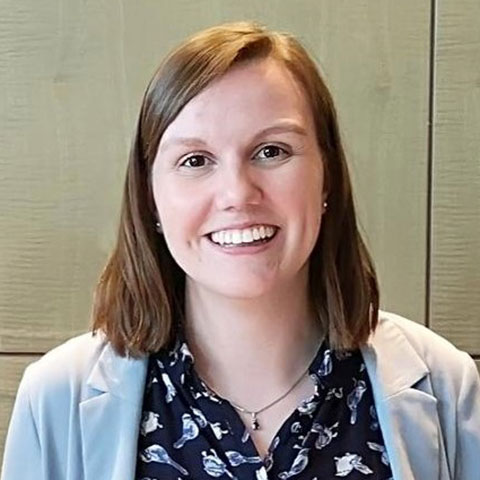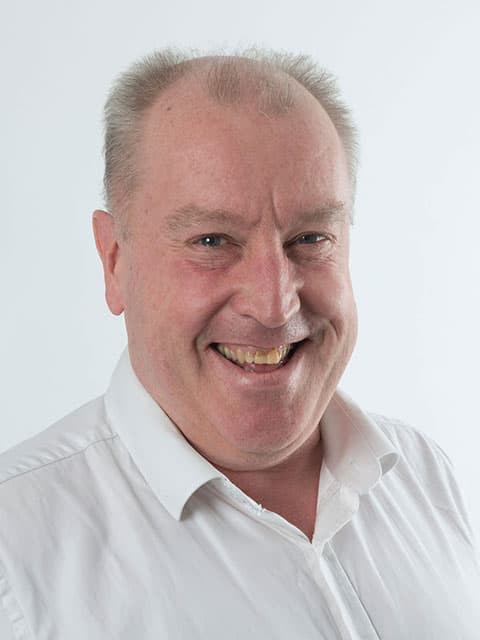Beth McMurchie
Beth McMurchie began her PhD in Chemistry at Loughborough in 2015. We’ve caught up with her to find out what she’s doing now.

The title of my thesis was ‘Forensic Evidence Enhancement using Physiological Aspects and Processes, I looked at improving the ways forensic examiners look for fingermarks and fluorescent evidence at a crime scene.
What did you do before studying your PhD?
Before my PhD at Loughborough University, I gained an MChem degree in Forensic and Investigative chemistry at the University of East Anglia.
What research did you work on at Loughborough and what skills did you gain?
My research was very multidisciplinary which allowed me to work with a variety of different people and learn a broad range of skills. In my first year I worked alongside the Design school using anthropometric tools to measure height, weight and hand/finger dimensions, and in my final year I worked with analytical chemists and the School of Sport and Exercise Science to take and measure blood samples to monitor uptake of fish oils.
What did you enjoy most about your PhD?
I enjoyed meeting such a variety of people, it taught me better ways to learn and understand things. I also enjoyed the ability to travel, I was fortunate enough to attend and present at a conference in Australia in my final year, which was a big highlight of my PhD.
Describe a day in the life of a PhD student
Sometimes doing a PhD is similar to a job, however as it is your research you can make it flexible to suit you. As I worked in a laboratory throughout my PhD, I would quite often set up an experiment, I would then be able to do some writing or reading before then analysing the result.
What are you doing now and how did your time at Loughborough help you?
I am now working as an R&D Applications Specialist for Foster+Freeman. I had connections with Foster+Freeman throughout my PhD, as my now boss, Rob King, was previously a PhD student, and later post-doc of Paul Kelly, my PhD supervisor. Through this connection I attended conferences with Rob, was able to borrow equipment for my experiments from Foster+Freeman, and Rob was a co-author on some of the work I published during my PhD.
When I finished my PhD, I carried on working with Paul on some synthetic collaborative work he had discovered with Rob King during his time at Loughborough university which is now commercialised and sold around the world. When Foster+Freeman were looking to begin selling this product, they hired me to continue the synthetic work and to progress with some research. Initially I was able to continue working in the chemistry laboratories at Loughborough University, with Foster+Freeman paying a bench fee.
Since then we have been able to set up a laboratory space in the Loughborough University Science and Enterprise Park, which was identified by Paul Kelly as a convenient space where we could set up an independent Foster+Freeman lab with the continued support of Loughborough University and the Chemistry department specifically. Not only was Paul Kelly incredibly helpful during this time, but the chemistry laboratory technicians, Al Daley, Pauline King, Emily Gale and Rebecca Marlow were all able to offer incredibly helpful insights going from simply working in a laboratory, to having one fitted, ordering all of our own equipment and organising all of our chemical waste.

A word from Dr Paul Kelly, Beth’s PhD supervisor
This was a project that really allowed the student, Beth, to shine and show she can work both independently (in terms of driving ideas by herself) and within a team (that included chemists, designers and external partners). This kind of collaboration is what sets a PhD apart from an undergraduate degree and tests the student, while at the same time providing invaluable experience.
In Beth’s case this experience has allowed her to go directly into setting up and running a lab for a global company, in an offshoot based on campus. The diverse range of directions the PhD took (beginning with looking at fingerprint size and ending proving that fish oil supplements help you see in the dark!) shows just how challenging, but rewarding, a PhD can be.